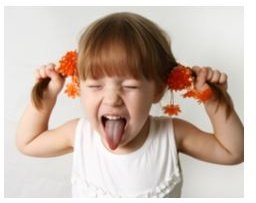How ADHD Affects Emotional Development
Have you ever heard of a silent baby growing up to be a hyperactive kid later on? Have you ever seen a child constantly blaming his peers and easily getting into petty fights? Has your student or son/daughter regularly shown angry outbursts and sudden mood shifts? These are some of the customary symptoms of slow or delayed emotional development that are very evident in children with ADHD.
Why the Delay?
There is said to be a direct link between Attention Deficit Hyperactivity Disorder, more commonly known as ADHD, and emotional development. Studies have confirmed that ADHD kids are delayed by up to thirty percent in emotional development as compared to those without this condition.
This mental disorder stems from neurological problems which are possibly a result of genes and the environment, and chemical imbalances in key areas of the brain. Because of ADHD kids’ lack of control and focus, there are direct connections to their emotions such as their tendency to shift moods every now and then. And due to their unusual behavior in school, they are also inclined to feel a bit depressed and may have greater difficulty in socializing with peers. In effect, their lack of control may again play a role in causing them to throw fits unexpectedly.
Another apparent demonstration of this condition is being nervous. Nervousness leads to unnecessary anxiety that also illustrates an impediment in emotional maturity. Furthermore, ADHD children also show impulsiveness such as when blurting answers in class or when suddenly standing up and walking around without any warning or without asking permission. This propensity to be impulsive is also reflected in handling emotions. For instance, they may get angry for no specific reason or be overly excited about something that seems insignificant to others. Other displays of emotional development setback include blaming others, getting into fights easily, being sensitive to criticism, and being affected easily by various situations and experiences (e.g. being too excitable, irritable, and difficult to soothe).
What can be done?
Since ADHD children are naturally hyperactive, they must learn to develop a state of balance, particularly emotional regulation. This can be achieved by providing a consistent flow of routines that involve both tension and rest. Tension can be in the form of physical activities and recreational doings which can evoke different emotions. Just be sure to train them how to control their emotions.
First of all, try to pinpoint the specific situations or “triggers” that make certain emotions come out. In this way, you will be able to anticipate a child’s reactions and thus be able to plan for measures.
For example, when a child gets hurt and tends to blame others instantly, train him to take a deep breath and instead of blurting out, go to a trusted adult to tell about the entire incident. In addition, a consistent flow of activities should be organized for these kids so as to avoid provoking them to have angry outbursts and mood swings.
When he knows what to expect, it gives the child stronger grasp on things and a more solid sense of control over their lives. When it comes to ADHD and emotional development, it also helps to apply outdoor therapy to release excess energy and develop a better self-esteem. Do not forget as well to praise them for their little achievements and provide the child with the all-important sense of belonging.
References
https://hdkio.hp.infoseek.co.jp/EN2.html
https://www.nativeremedies.com/ailment/child-adhd-symptoms-info.html#question3
https://www.childdevelopmentinfo.com/kids_adhd/adhd.shtml
https://www.healthcentral.com/adhd/c/1443/13716/addadhd-statistics/
